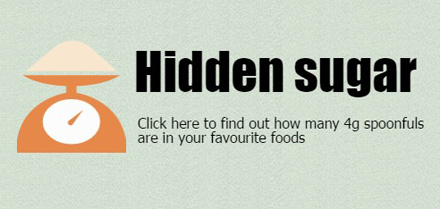Sugar tax: MPs back levy, but would it solve obesity crisis?
Committee says tax would need to form part of wider package of measures that includes a clampdown on promotion

A free daily email with the biggest news stories of the day – and the best features from TheWeek.com
You are now subscribed
Your newsletter sign-up was successful
An influential panel of MPs has backed calls for a sugar tax as part of "bold and urgent" reforms to tackle childhood obesity.
The Commons' Health Committee cited the success of the policy in Mexico, where a 10 per cent levy on sugary drinks resulted in a six per cent decrease in consumption, the BBC reports. It said there is "compelling evidence" a tax could influence behaviour and that the arguments in favour can "no longer be ignored".
The MPs did, however, acknowledge that no single measure is likely to transform eating habits. It has said the introduction of a sugar tax should form part of a package of measures that also includes stringent controls on promotion and clearer labelling.
The Week
Escape your echo chamber. Get the facts behind the news, plus analysis from multiple perspectives.

Sign up for The Week's Free Newsletters
From our morning news briefing to a weekly Good News Newsletter, get the best of The Week delivered directly to your inbox.
From our morning news briefing to a weekly Good News Newsletter, get the best of The Week delivered directly to your inbox.
The comments echo a report from Public Health England – delayed by Health Secretary Jeremy Hunt – which last month that called for a sugar tax of at least 10–20 per cent. It also recommended a crackdown on the advertising of sugary products aimed at children, special offers on junk food in supermarkets and bottomless cups of fizzy drinks.
The British Medical Association, alongside other medical groups and health charities, has urged the government to implement the report's recommendations, the BBC reports.
But David Cameron's spokesperson has said that the Prime Minister "doesn't see a need for a tax on sugar". The government will be releasing its own plan to tackle childhood obesity in January.
Leaders of the food and drinks industry have also rejected the committee's comments and the report's findings. "We do not agree that the international evidence supports the introduction of a sugar tax and for this reason would oppose such a move," said Ian Wright, director general of the Food and Drink Federation.
A free daily email with the biggest news stories of the day – and the best features from TheWeek.com
How much sugar should we eat?
The NHS's recommended daily guidelines for added sugar are currently 70g (17.5 teaspoons) for men and 50g for women (12.5 teaspoons), depending on a person's size, age and activity levels. The Scientific Advisory Committee on Nutrition wants to cut this recommended intake in half. This would mean just one 330ml can of Coke (35g sugar), a 250ml glass of cranberry juice (36.3g sugar) or a Mars bar (33g sugar) would exceed limits for women and take up most of a man's daily intake.

Why the concern about sugar now?
Sugar has been cast as the villain of Britain's obesity crisis. A quarter of the UK adult population is now said to be obese, with the proportion set to rise to a third by 2030. The BBC says "a fifth of children start primary school overweight or obese, rising to a third by the time they leave".
The BMA claims that poor diet costs the NHS around £6bn a year – greater than the impact of alcohol, smoking and physical inactivity.
But is sugar really to blame?
Representatives from Action for Sugar, a campaign group of health experts and academics, say that sugar is "the new tobacco" pushed on unsuspecting parents and children by "a cynical industry focused on profit not health". Sugary foods and drinks cause tooth decay and can contribute to people becoming overweight, which increases risk of heart disease and type 2 diabetes, says the NHS.
But others, including many in the sugar and confectionary industry, argue sugar alone is not to blame. Over-consumption of calories from all types of food, including fats and alcohol, as well as our increasingly sedentary lifestyles have caused obesity, they say. The British Dietetic Association has acknowledged that there is little evidence to say that sugar itself causes type 2 diabetes and Sugar Nutrition UK, citing research funded by the World Health Organisation, states that "any link to body weight was due to overconsumption of calories and was not specific to sugars".
Do we need a sugar tax?
Health Secretary Jeremy Hunt has ruled out a sugar tax, but campaigners continue to argue that it would help curb obesity. The BMA says a 20 per cent tax on sugary drinks would be a "useful first step" towards the long-term goal of taxing a wide range of products in the fight to reduce obesity. It suggests that the tax on energy drinks, sports drinks and fruit-juice concentrates could subsidise the sale of fruit and vegetables. "We know from experiences in other countries that taxation on unhealthy food and drinks can improve health outcomes, and the strongest evidence of effectiveness is for a tax on sugar-sweetened beverages," says Professor Sheila Hollins, the author of the report.
Another study, by Oxford University last year, suggested that a 12p tax on fizzy drinks would cut consumption by 15 per cent and mean 180,000 fewer obese adults. The Health committee cites figures that sugary drinks are the single biggest source of sugar for 11 to 18-year-olds.
However, Prof Richard Tiffin, director of the Centre for Food Security at the University of Reading, says that many other studies suggest it would not work. "The real battleground is in the mind of the consumer," he writes in the Daily Telegraph. "At its most troublesome level, the obesity epidemic is centred on a minority of people who struggle to make healthy lifestyle choices. Convincing these people to change their behaviour requires subtle and targeted action – not the blunt instrument of blanket price increases."
Should we stop drinking juice?
Earlier this year, campaigners called for a ban on the sale of energy drinks to under-16s after a study showed that some contain up to 20 teaspoons of sugar in a single serving. Cola drinks, lemonade and even fruit juice are also major contributors to the obesity epidemic, experts have said, and a particular problem for children who consume more of them than adults.
The NHS notes that fruit juice is "still a healthy choice", with one 150ml serving counting towards your five a day. However, it says that any more than this does not count towards the fruit quota and recommends that it is drunk with a meal to avoid tooth decay. It also says that we should not cut down on fruit as it is an important part of a healthy diet.
How can sugar content be reduced?
Many food companies have voluntarily agreed to cut sugar in their products by ten per cent under the government's Responsibility Deal, but academics say this does not go far enough. Here are some of the ideas currently up for debate:
- Better packaging: It is not just sugary drinks and sweets that are the problem, many people are unaware of the sugar levels in other products such as soups, ready meals and cereals. So-called "hidden sugars" are often listed as glucose, sucrose or fructose and it can sometimes be hard to tell if sugar content is natural or added. The Health Committee called for simple labelling that shows sugar content in teaspoons, like in our chart above.
- Reduce sugar levels in products: Action on Sugar has calculated that reducing sugar in processed foods by between 20 and 30 per cent over the next three to five years could remove 100 calories a day from diets, which it claims is enough to halt or reverse the obesity epidemic.
- Ban on advertising: MPs are calling for restrictions on marketing of sugary products, specifically including banned the use of cartoon characters to promote unhealthy food to children. Ads for unhealthy foods would be banned before a 'watershed' of 9pm.